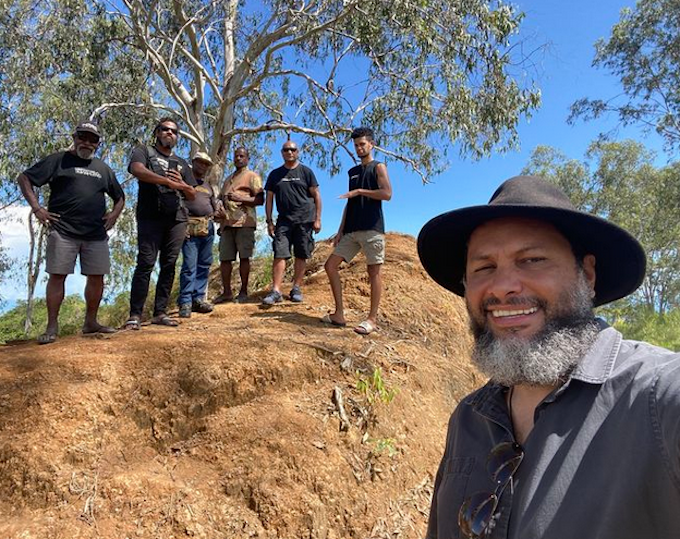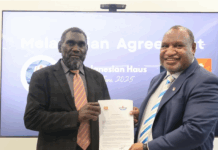
The Governor of Oro province in Papua New Guinea, Gary Juffa, says Prime Minister James Marape encourages “honest debate” and discussion within his government.
The PNG coalition government is made up of 17 parties in an 118-seat Parliament. There are now only nine opposition MPs, after recent switches to government benches.
With so few opposition MPs, concerns have been raised that the opposition cannot effectively hold the government to account.
But Juffa disagrees, telling RNZ Pacific that disagreement and debate are encouraged between government MPs.
“There are MPs who monitor what is happening within government and do hold the government to account, there is a lot of debate and discussion in the government caucus,” he said.
“If the government makes a decision that the other members feel it’s not in the best interest of the country or the people they will voice their concerns.
“And that is actually a very — in my opinion — positive [feature] about the Marape government, the Marape government encourages dissent within his government.
Voicing their concerns
“Our prime minister has allowed people and members of Parliament within the government to be critical, to voice their concerns.
“The past O’Neill government was very harsh towards any criticism, whereas the government of Marape allows criticism, and he has encouraged free media. He has allowed the media or he has encouraged the media to report. We do want the media to report factually.
“If they do report on critical concerns about the government then it is based on facts rather than rumour or rhetoric.
“Well, you know, I was in the opposition for seven years and nothing stopped me from speaking up. There were times when there were only five or four of us, but we still spoke up.
“You know, I think there are some good opposition MPs who were very vocal, and I don’t think it’s everyone joining the government-type situation. I think there are vocal active opposition MPs in Papua New Guinea,” he said.
Juffa, who founded the People’s Movement for Change party, of which he is the sole Member of Parliament, also commented on the government’s response to the violence which erupted during the 2022 election.
“The government has formed a parliamentary committee, chaired by Governor Allan Byrd, and it’s reached out to the Institute of National Affairs and other organisations. I believe they will also be working with the Commonwealth observers and other institutions, organisations that were critical of the elections,” he said.
Most violent election
The poll was described as the most violent in the country’s 47 years of independence, with dozens of people losing their lives.
“So there have been immediate steps taken, I understand that the committee will be funded. It has the support of the executive government and the Prime Minister.
“And efforts are well underway to address and conduct a review of not just these elections, but previous elections and look at ensuring that the 2027 elections are a far more transparent, well-run well managed election than the ones we have seen in the past.”
RNZ Pacific’s correspondent in Papua New Guinea, Scott Waide, said that during polling that the violent extremes reflected wider public frustration in a poorly planned and managed election.
Juffa said unfortunately the reality was that there was a lot yet to be done in many parts of Papua New Guinea, “violence is very much prevailing”.
“Still, during these types of situations, we want to address them, and I believe the prime minister, the police minister and other members of Parliament charged with the responsibility are doing the best they can,” he said.
During the 2022 general election, Papua New Guinea police and electoral authorities were on the verge of declaring failed elections in some parts of the country at one stage where violence had all but halted the electoral process.
This article is republished under a community partnership agreement with RNZ.












































